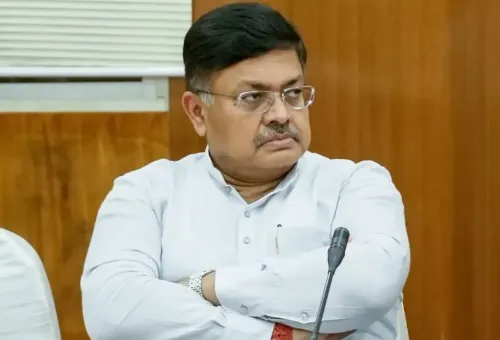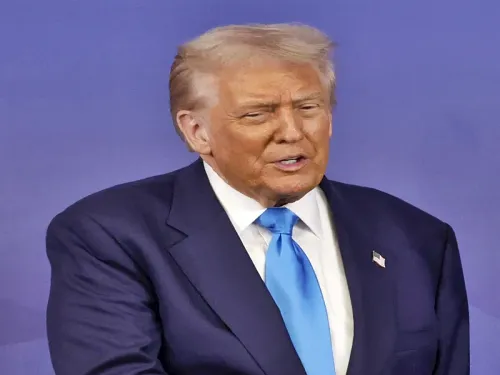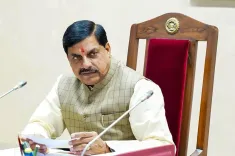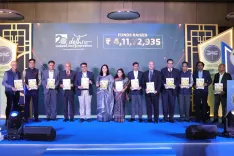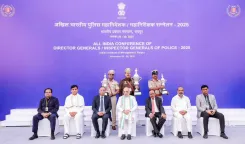How Can IPS Probationers Serve the Public Effectively?
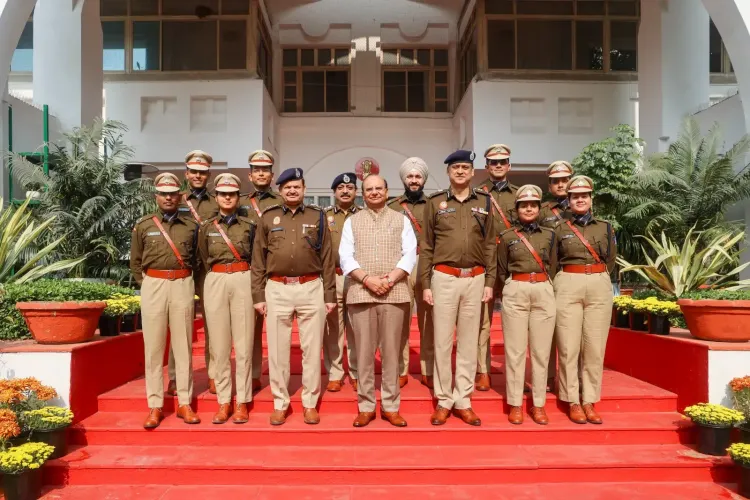
Synopsis
Key Takeaways
- IPS probationers are encouraged to focus on public service.
- Good governance is essential for effective administration.
- Self-promotion should be avoided in favor of dedication.
- The role of civil servants is evolving due to modern challenges.
- Collaboration is now more important than hierarchy.
New Delhi, Nov 28 (NationPress) The Lieutenant Governor of Delhi, V. K. Saxena, engaged with the Indian Police Service (IPS) probationers from the 2023 and 2024 batches on Friday, encouraging them to channel their expertise towards public service.
During this session, the L-G emphasized the importance of good governance and advised against self-promotion, according to a statement from Raj Niwas.
In a post on X, the L-G remarked, "I had an insightful interaction with the enthusiastic IPS probationers of the 2023 and 2024 batches at Raj Niwas. They shared valuable experiences gained from training with specialized agencies across various states."
He advised the aspiring officers to leverage their skills and knowledge for effective governance, while upholding the principles of integrity, sincerity, and dedication.
The L-G also warned against tendencies of self-promotion and urged them to stay focused on their primary mission of serving the public. He expressed his wishes for their bright future in their careers.
This interaction at Raj Niwas followed a statement by P.K. Mishra, Principal Secretary to Prime Minister Narendra Modi, during the Plenary Session of the UPSC's Shatabdi Sammelan Programme. He noted that the expectations from civil servants have shifted from gradual improvements to demanding accelerated transformation.
Mishra highlighted the crucial role of civil services in India's progress towards Viksit Bharat and emphasized the need for officers to think beyond traditional boundaries, operate across multiple sectors, and ground their efforts in humility, integrity, and purpose.
He pointed out that modern challenges, such as technology advancements, urbanization, climate issues, and frequent disasters, have redefined the roles of civil servants. Today’s governance requires collaboration over hierarchy.
Over time, expectations have evolved from mere compliance to delivering outcomes, from gradual enhancements to rapid transformations, and from isolated government departments to a cohesive digital infrastructure. This shift has also transformed the role of the state from being merely a provider to a partner with citizens through Jan Bhagidari.
Mishra stressed that India is at a pivotal juncture on its path to Viksit Bharat 2047, and the upcoming decades should be guided by three key principles: to reshape civil services for a developmental, service-oriented state; to innovate the selection process to identify truly capable individuals; and to foster a lifelong learning environment.
He underscored that the raised expectations from civil servants are apparent across various sectors including digital payments, social protection, health, infrastructure, logistics, skilling, taxation, urban governance, and rural development, and are extending into leading-edge fields where India aims for global leadership, such as quantum technologies, space innovation, and the blue and green economies.


